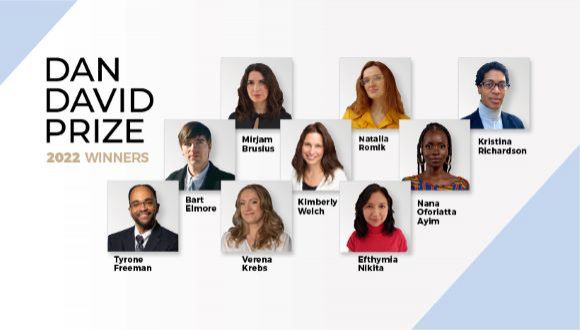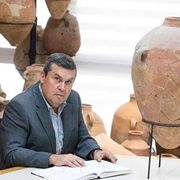The New Dan David Prize Announces Inaugural Cohort of Winners
Nine outstanding scholars and practitioners of history to receive $300,000 each in recognition of breakthrough achievements in the study of the past
The Dan David Prize, the world’s largest history prize, has announced its first cohort of winners, which includes a historian who investigates the environmental impact of big business, a researcher who uncovers Jewish hiding places during the Holocaust and the founder of a mobile museum of African heritage. The Prize recognizes early and mid-career scholars and practitioners who illuminate the human past in bold and creative ways, and awards nine winners $300,000 each to help further their work.
The 2022 winners cover a wide range of historical disciplines – from bioarchaeology to medieval studies to modern U.S. history. They are unlocking the secrets held by human remains and medieval manuscripts, uncovering forgotten legal cases from the American South and revealing echoes of Ethiopian global power. They are experimenting with new ways of imagining museums, rewriting the story of the world’s most popular soft-drink and tracing the little-known history of African-American philanthropy.
The 2022 winners are listed below:
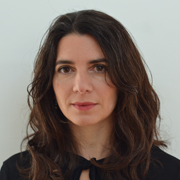 |
Mirjam Brusius is a cultural historian who studies visual and material culture in global and colonial contexts. She investigates how objects made their way into the major museums and collections, and what happened to them there. Through the “100 Histories in 100 Worlds in 1 Object” project she uncovers what meanings museum objects hold for the people in the places where they were initially taken. Brusius is currently a Research Fellow in Global and Colonial History at the German Historical Institute in London, where she is completing a book on the movement of ancient artifacts from the Middle East into Western museums. |
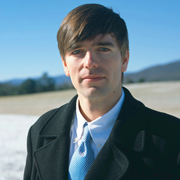 |
Bart Elmore is an environmental historian who uses everyday products – from sodas to seeds – to demonstrate how large multinational firms have reshaped global ecosystems. In addition to uncovering the environmental impacts of capitalism, he invites us to draw on the past to find strategies for developing an ecologically healthier economy for the future. Elmore is an Associate Professor of Environmental History at Ohio State University and the author of Citizen Coke: The Making of Coca-Cola Capitalism and Seed Money: Monsanto’s Past and Our Food Future. |
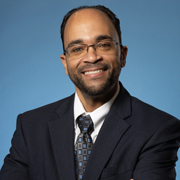 |
Tyrone Freeman is a historian of philanthropy who researches African-American charitable giving and activism. His work invites us to rethink traditional views of philanthropy as an arena reserved for wealthy elites, and to reconsider what philanthropy is and who can engage in it, as well as how African-American communities are understood and represented. Freeman is an Associate Professor of Philanthropic Studies at Indiana University-Purdue University Indianapolis, and author of Madam C.J. Walker’s Gospel of Giving: Black Women’s Philanthropy during Jim Crow. |
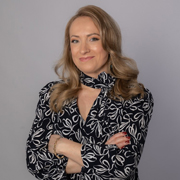 |
Verena Krebs is a cultural historian who draws on material culture and art, alongside written sources, to uncover the complex relationship between Ethiopia and Western Christendom. Her work overturns traditional narratives of European-African relations, and paints a vivid picture of medieval Ethiopia at the height of its power. Krebs is a W1 professor of "Medieval Cultural Realms and their Entanglements" at Ruhr-University Bochum in Germany and is the author of Medieval Ethiopian Kingship, Craft, and Diplomacy. |
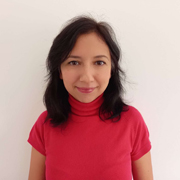 |
Efthymia Nikita is an osteoarchaeologist who uses a wide range of innovative methods to unlock what human skeletal remains reveal about the health, diets and mobility of ancient peoples. Her work reanimates the everyday lives of those – such as slaves or women – excluded from written sources and reveals the long history of migration in the Mediterranean world. Nikita is an Assistant Professor in Bioarchaeology at the Science and Technology in Archaeology and Culture Research Center (STARC) at the Cyprus Institute and is the author of a textbook on osteoarchaeology. |
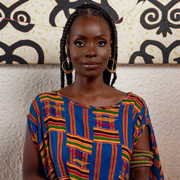 |
Nana Oforiatta Ayim is a curator, writer, filmmaker and public historian whose work recenters African narratives, institutions and cultural expressions in telling the past. She established the pan-African Cultural Encyclopedia, an open-source archive of African arts, and has developed a Mobile Museum that draws on local traditions of knowledge and display as it travels across Ghana. Oforiatta Ayim is the director of the ANO Institute of Arts and Knowledge in Accra, Ghana, and author of The God Child.
|
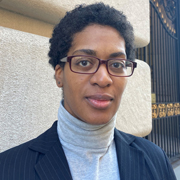 |
Kristina Richardson is a social and cultural historian of the medieval Islamic world. Working with understudied manuscripts, she focuses attention on non-elites and marginalized groups, from Roma printers to free and unfree African and Asian laborers. Richardson is an Associate Professor of history at Queens College and the CUNY Graduate Center and the author of Difference and Disability in the Medieval Islamic World , Roma in the Medieval Islamic World: Literacy, Culture, and Migration. |
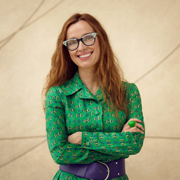 |
Natalia Romik is a public historian, architect and curator whose work focuses on Jewish memory and commemoration of the Holocaust in Eastern Europe, especially Poland and Ukraine. She created the Nomadic Shtetl Archive Project, which engages local communities in remembering Jewish history. Her work draws attention to often-overlooked sites of Jewish and Holocaust history, with a focus on uncovering and preserving Jewish wartime hiding places. Romik is a postdoctoral fellow at the Foundation for the Memory of the Shoah in Paris. |
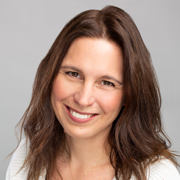 |
Kimberly Welch uses endangered local legal archives from the antebellum American South to explore lawsuits brought by free and enslaved Black people. Her work reveals a new picture of the agency of African-Americans in the Antebellum era and recounts their active role in society and the economy. Welch is an Associate Professor of History at Vanderbilt University and author of Black Litigants in the Antebellum American South. She is working on a book that examines free Black moneylenders and their involvement in the credit economy of the early modern Atlantic world. |
Moving History Forward
“These nine winners represent the innovation and energy that move the historical disciplines forward. Their work is at once a testament to the power of research and expertise, and to the ways knowledge of the past can enrich our understanding of the present,” said Prof. Katherine E. Fleming, Provost of New York University and member of the Dan David Prize board.
The recently redesigned prize attracted hundreds of nominations from around the world and the nine winners were chosen following a rigorous selection process by a committee of eminent scholars in a wide range of historical fields.
The Prize, endowed by the Dan David Foundation and headquartered at Tel Aviv University, was established in 2001 by the late entrepreneur and philanthropist Dan David. Initially dedicated to recognizing achievements in rotating disciplines of the sciences and the humanities, the Prize was redesigned in 2021 ahead of its 20th anniversary.
“We live in a world in which the humanities, and particularly history, are devalued and attract less investment, even as it remains clear that only by deepening our knowledge of the past we can gain a better understanding of the present,” said Ariel David, board member of Prize and son of the founder. “For this reason we have chosen to focus exclusively on the historical disciplines and support emerging scholars and practitioners, within and beyond the academy, at a stage in their career when the Prize can make a bigger impact.”
“If you are a person who believes history can make a difference in the world, this prize is an affirmation of that,” said Bart Elmore, environmental historian and recipient of one of this year’s prizes.
The nine winners will be honored at the 2022 Dan David Prize Award Ceremony in Tel Aviv in May.
Learn more about Dan David, the Prize and the 2022 winners: www.dandavidprize.org.


